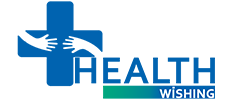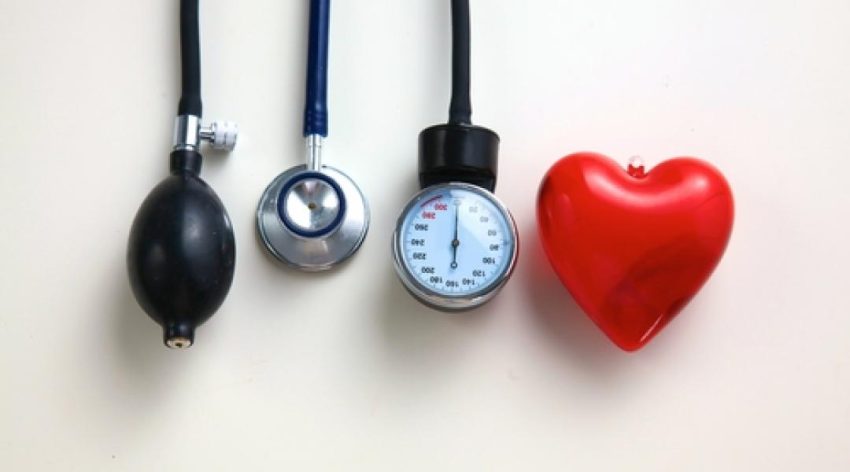The stress on the heart can increase the chance of suffering from heart failure as well as other health Issue. This is why monitoring and treating hypertension is essential. Your heart is an additional organ that could be benefited by a change in the way you live. If you don’t treat hypertension for a prolonged amount of time heart disease characterized by hypertension could be a possibility. High blood pressure, also referred to as hypertension, is a persistent condition that can driver damage to the heart in the course of time.
It’s a group of diseases which can manifest if the blood pressure isn’t controlled such as heart failure and conduction arrhythmias (hypertension). Hypertensive heart diseases are the result of continuously high blood pressure. It is defined as readings greater than 120 times 80 millimeters Hg over a long amount of time. Alongside getting older The risk of cardiovascular disease increases when hypertension isn’t addressed. Adults who are older (often those who are over 65) are at a higher risk of developing heart failure.
If you experience high blood pressure regularly then your heart will have to be more efficient in circulating circulation of blood through your entire body. A weak, thicker heart muscle could increase your chances of suffering from heart failure. A high blood pressure could result in the wall of the blood vessels to get thicker and driver harm when cholesterol accumulates within the blood vessels. The chance of suffering a stroke or heart attack rises.
Three times as likely as men to suffer heart failure when they have excessive blood pressure. But, the likelihood of heart failure can be greatly decreased if hypertension is managed.
- Heart failure patients affected due to hypertension tend to be more prone to be affected by:
- Congestive heart failure which hasn’t yet fully been fully recovered.
- Intense pain in the heart due to a heart attack.
- A heart attack can driver death. It happens suddenly.
If the blood pressure of your elevated and your heart isn’t working as well, it becomes more difficult for your heart supply blood to all the tissues of your body. In the event that your blood pressure gets high, plaque can accumulate in your arteries and a portion that is part of the heart could expand. This could lead to a variety of complications.
- A chronic narrowing of the coronary arteries.
- An excessive growth of the left ventricle of the heart (enlarged heart).
What are the effects of hypertension on the heart?

The most common issues that may be driver by having heart hypertension include:
- Heart failure or stroke.
- Arrhythmia.
- Stroke.
- Cardiovascular ischemia.
- Heart attacks can kill you. is sudden.
The dangers that are associated with high blood pressure
- Atrial arrhythmias.
- Insufficient Cardiovascular function as a result of congestion.
- A chronic narrowing of the coronary arteries.
- Atherosclerosis.
- The retina is afflicted with a disease.
- The extremities are afflicted with an arterial condition.
- The kidneys are affected by conditions which persist for a period of time.
- The rupture of the Aortic wall.
- Ailment of the brain blood vessels.
- The risk of developing Cardiovascular hypertension-related heart disease is calculated.
Just 50 percent of 1/3 of American adults suffering from hypertension actually are under control. The most prevalent health Issue and major driver of death in hypertension is heart disease.
Related: Some Points to Examine Deciding Your Heart Medical
Which of the people are most likely to develop Hypertensive Heart Disease?
Hypertensive heart disease could be possible if:
- High blood pressure.
- Get out of the exercise room.
- Do you suffer from diabetes.
- Have elevated levels of lipids.
- The people who are using this term are older than 45.
- Are overweight and suffer from it.
- Smoke cigarettes or tobacco products. cigarettes.
- Get ample amounts of salt.
- Get a drink.
What are the driver of increased blood pressure at the heart?
Hypertensive heart diseases develop when blood pressure rises not treated for a long duration of time.
How do you recognize whether hypertensive disease is present?

A lot of people with high blood pressure are not aware they are suffering from it driver there aren’t any obvious signs. Hypertensive cardiovascular symptoms typically appear after significant damage to the heart has been caused.
The symptoms and signs for high pressure within the heart are:
- Hurting chest
- Inability to breathe deeply due to breath shortness.
- Palpitations
- Dizziness
- Fainting
- Stroke.
- Heart attacks can kill you. is sudden.
How can one identify if one suffers from Hypertensive Heart Disease?
Patients with high blood pressure usually don’t have any signs, therefore it’s vital to maintain regular appointments with your physician. Your provider is likely to request:
- Information about your health history.
- If you have a family history of heart disease in your family, you should consult your doctor.
- There will be an examination of the body.
How can Cardiovascular hypertension be detected?
Ischemic cardiomyopathy and the other possible reasons for heart Issue have to be assessed by your physician. Examples-
- Blood tests are a must.
- We’ll need to take the urine sample
- Electrocardiogram (EKG)
- Certain individuals could benefit from an echocardiogram.
How can doctors manage Hypertensive Heart Disease?
Your physician will address concerns such as:
- Chronic hypertension
- Diabetes
- Obesity
- Poor lung health
- Apnea of the slee
- The kidneys are affected by conditions that last for a long time
- A high level of cholesterol in blood.
Your physician may suggest that you make the following adjustments to your routine
- Avoid using tobacco in any way.
- Cut down on the amount of alcohol you drink.
- Get rid of the use of drugs for pleasure.
- Physical activity should be recommended.
- Limit the amounts of sodium in your diet.
- Be fit
What is hypertensive Cardiovascular disease treated by medications?

It is essential to continue taking your medication even if they may have negative consequences, as every drug could trigger them. Your physician could be able change the medication you’re taking if there are undesirable negative side consequences.
Examples of hypertension medication include:
- Diuretics are substances that aid in the elimination of excess fluid.
- Calcio Tropics are blood vessel dilation agents that block calcium channels.
- Blood vessel dilation agents called angiotensin-converting enzyme inhibitors.
- Blood vessel-calming angiotensin II receptor blockers.
- Vasodilators are drugs which driver blood vessels to dilate or to open up wider.
- Vasodilators are effective in blocking Renin.
- The drugs that block beta receptors within the body can reduce heart rate, thereby making the heart’s pumping process less stressful.
The hypertensive condition of the heart has driver me to suffer and I’m not sure how to manage its manifestations?
You can do a range of tasks, including:
- Keep taking the medication that your doctor prescribed.
- Get medical attention for any illness you could be suffering from.
- Make the changes mentioned earlier to better habits.
- Do not miss any follow-up appointments with your doctor.
How do I know the odds to develop heart disease because of hypertension?
By changing a few aspects of your routine you could reduce your risk of developing hypertensive cardiovascular disease.
- Exercising
- Controlling your weight to keep it in the right place.
- Foods that are nutritious.
- These medicines, which are designed in lowering your blood pressure can be prescribed by your physician.
- Anti-calcium agents.
- Diuretics.
- Antagonizers for beta receptors.
- Anti-congestive enzyme inhibitors
- Potassium supplements
What ways can help me prevent my heart disease from being driver due to hypertension?

If you’re 18 years old or over, it is recommended to have your blood pressure checked every year. If your numbers are high, you need to be screened more often. Keep a healthy blood pressure. The blood pressure gauge is available for purchase and use from the comfort of your home.
Early detection and treatment for high blood pressure can reduce the risk of complications such as these.
- Stroke
- Coronary disease
- The kidneys are affected by conditions that last for a long time.
- Trouble seeing
- Don’t ignore your diabetes
- Keep track of the levels of cholesterol.
When blood pressure remains high it is a medical indication of hypertension. Grade 1 hypertension according to the International Society for Hypertension is when you have a constant having blood pressures that are at the minimum 140/90 mmHg. It is recommended by the American Heart Association and the American College of Cardiology, however, suggest hypertensive patients to maintain their blood pressure at or below 130/80 mm Hg throughout the day.
Hypertension can increase the chance of developing heart attack, heart disease and strokes. Modifying one’s diet or level of physical exercise can help in the treatment of hypertension, which is usually caused due to genetic predisposition or other factors in the lifestyle. Take control of your blood pressure the aid of a variety of prescription medications recommended by the experts at myHealthcare.
Read more:

